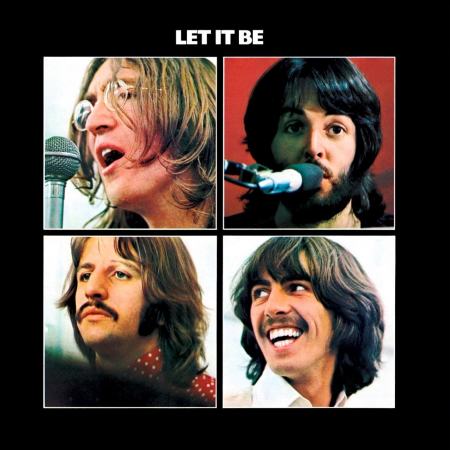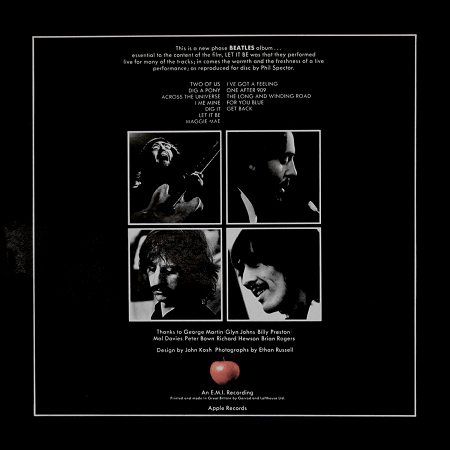BEATLES ALBUM INFORMATION & BRIEF DESCRIPTION
| Date LP Released: |
May 8, 1970 |
| Dates LP Recorded: |
February 1968; Jan-Feb 1969
January; March-April 1970 |
| Studio Recorded: |
Abbey Road Studios, London
Apple Studio, London
Twickenham Film Studios, London |
| Record Label: |
Apple Records |
| Album Producer(s): |
Phil Spector |
| Album Total Length: |
35:10 |
|

Get LP in MP3 Format
Sent To You In Email!
|
|
Brief Album Description:
Let It Be is the twelfth and final studio album by the English rock band the Beatles. It was released on 8 May 1970,
almost a month after the group's break-up. Like most of the band's previous releases, it was a number one album in many
countries, including both the US and the UK, and was released in tandem with the motion picture of the same name.
The album was conceived as Get Back, a return to the Beatles' earlier, less complicated approach to music. It was
recorded and projected for release before their album Abbey Road (1969); for this reason, some critics and fans argue that
Abbey Road should be considered the group's final album and Let It Be the penultimate. Rehearsals began at Twickenham
Film Studios in January 1969 as part of a planned documentary showing the Beatles preparing to return to live performance.
A project instigated by Paul McCartney, the filmed rehearsals were marked by ill-feeling, leading to George Harrison's
temporary departure from the group. As a condition of his return, the Beatles reconvened at their own Apple Studio,
where they completed the recordings with the help of guest musician Billy Preston. Following several rejected mixes by
Glyn Johns, a new version of the album was produced by Phil Spector in March–April 1970. While three songs from the
sessions were released as singles before the album's release, "Get Back"/"Don't Let Me Down" and "Let It Be", the songs
were remixed by Spector for the album and "Don't Let Me Down" was not included. Let It Be... Naked was released in 2003,
an alternative version of the album, without any of Spector's production work and using some different takes of songs.
|
|




















































.png)
